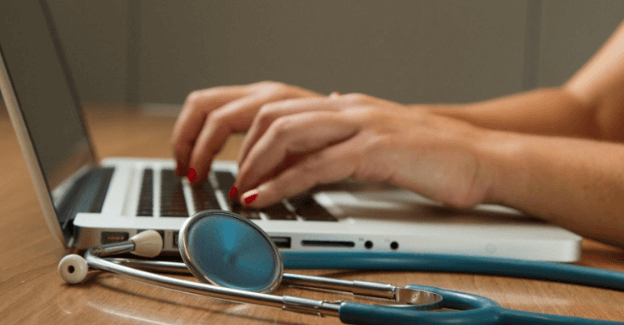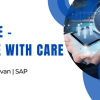Proper Tools and Training Can Lower Cyber Risks in the Healthcare Sector
Organizations in the healthcare industry have always been a target for cyberattacks. Since the COVID-19 pandemic struck and sent the healthcare industry into chaos, the number of cyberattacks and attempts has increased exponentially.
Although hospitals and clinics, and other organizations in the healthcare field are responsible for the safekeeping of extremely valuable data, a recent survey concluded that only 18% of healthcare workers believe that their medical devices contain strong security features. And over the last five years, 80% of respondents suffered at least one cyberattack.
With the industry experiencing more cyberattacks on hospitals than ever before, employees need to be knowledgeable about security measures and take the proper precautions to safeguard the valuable data in their systems.
Cyber Risks in the Healthcare Sector
As the pandemic struck down on the world, the healthcare sector began focusing every effort on protecting the health of patients. It wasn’t long before a shortage of supplies became a new challenge as healthcare workers risked their lives to contain the virus.
While all the attention was turned to containing COVID-19 and treating victims of the virus, already vulnerable digital systems became even more susceptible to cyberattacks. As organizations allowed employees to use personal devices to access internal networks, the time and resources to train them on proper security protocols were non-existent. The perfect scenario was created for hackers and cybercriminals to hack and phish their ways into systems and gain access to confidential information.
Organizations and employees need to know what they can do to protect the data in their systems. With 88% of med-tech leaders in the U.S. doubting that their organizations are prepared for cyberattacks, it’s vital to educate and empower the industry to take security measures seriously because the impacts of a cyberattack can be devastating.
Here are a few simple ways for healthcare employees and organizations to keep their systems and data protected.
Tips for Institutions and Individuals to Stay Protected
With employees working remotely and time and resources running low, it’s more difficult now than ever to focus on implementing security measures and training. Still, it’s also more important now than ever for the same reasons. By taking the time and finding the resources to follow the steps below, institutions and individuals can rest assured that their systems and the data stored within them are protected.
Organize Security Awareness Training
Knowledge is power. One of the best tools that an organization can use against cyberattacks is education. It’s essential to organize security awareness training to teach employees about the various types of threats to the system and what they can do to protect data and keep intruders at bay. The number-one reason why phishing attacks are successful is through human error. When individuals don’t know the warning signs and what to look out for, they can easily fall victim to a cyberattack.
Keep Software Up to Date
Every computer system needs reliable antivirus software installed and enabled. It also needs to be updated regularly. Security updates for systems and software get routinely released, and one of the best ways to keep your data protected is always to make sure you’re using the most up-to-date versions. Outdated software can contain bugs and gaps that hackers can use to infiltrate the system and gain access to confidential information. To ensure that you’re always using the most up-to-date versions of your software, enable automatic updates.
Using Security Tools
Whether your organization is equipped with Mac or Windows, there are several built-in security tools that you can take advantage of to safeguard your system. Here are the top three most straightforward security tools that you should set up if they aren’t already:
- Always protect your devices with custom alphanumeric passwords so that hackers can’t use an algorithm to decode them.
- Use two-factor authentication wherever possible to add an extra layer of security that requires a live code sent to a separate device that you choose.
- Browse the internet using a Virtual Private Network. A VPN encrypts all incoming and outgoing data and masks the IP address so that no one can gain access to your system using it, including the government, your ISP and hackers.
Organizations and individuals within the healthcare system have the power to reduce cyber risks and attacks significantly. With the proper knowledge and tools, you can protect your data whether you’re in charge of an organization or are an employee working from home. Everyone needs to do their part to keep the system safe.









